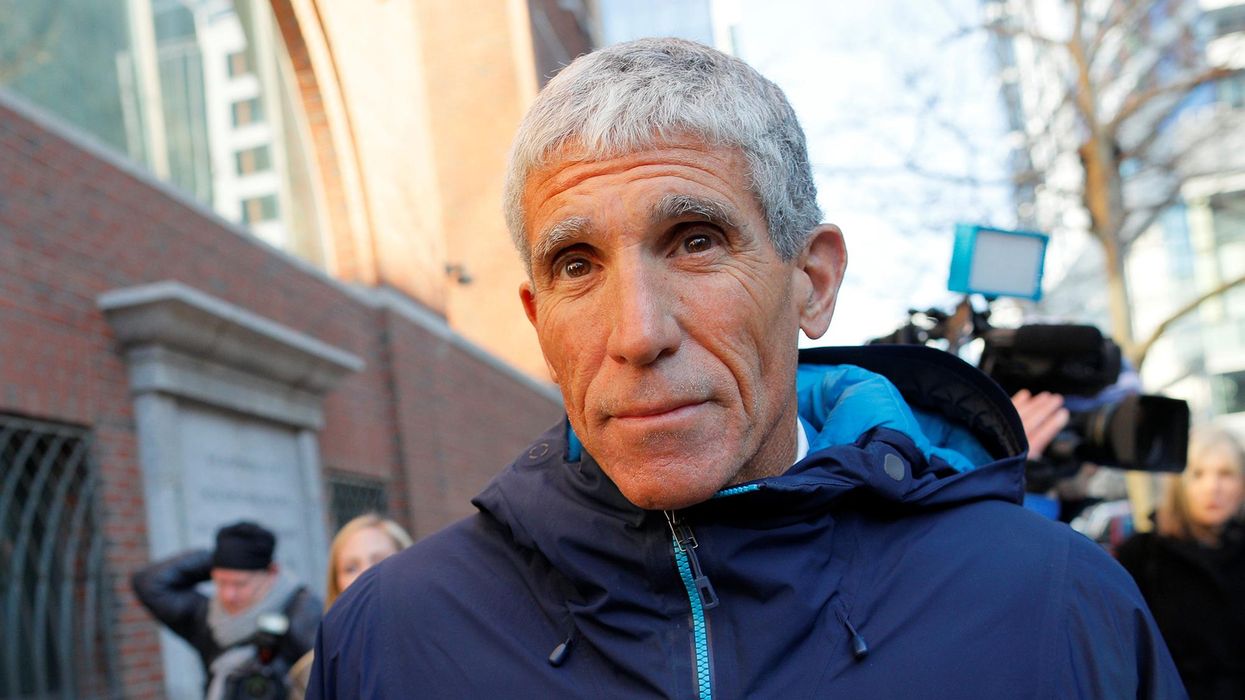(CNN) — The mastermind of a historic pay-to-play scheme for wealthy parents to get their teens into top universities is set to be sentenced next week.
Prosecutors want William "Rick" Singer, the college admissions scam architect, to serve six years in prison and pay over $19 million in fines and asset forfeitures. Singer's attorneys are seeking probation with home detention and community service.
Singer is one of the last to be sentenced in connection to the decade-long scandal that led to more than 50 arrests and convictions, including celebrities like Felicity Huffman and Lori Loughlin who used Singer's services to get their kids into elite schools.
His scheme involved paying off test proctors and administrators to cheat on college entrance exams and bribing college athletic coaches and administrators to designate applicants as athletic recruits based on fabricated credentials, court documents have shown.
Singer, who has cooperated with federal prosecutors since September 2018, told the court in his own words that he takes responsibility for his actions and feels shame for them.
"I have been reflecting on my very poor judgment and criminal activities that increasingly had become my way of life. I have woken up every day feeling shame, remorse, and regret," Singer wrote in a recent court submission ahead of his sentencing. "I acknowledge that I am fully responsible for my crimes."
In reflecting on the scheme that cost him his own wealth, he attributes his motivations to a fierce competitive drive to "win at all costs."
"By ignoring what was morally, ethically, and legally right in favor of winning what I perceived was the college admissions 'game,' I have lost everything," Singer wrote.
Prosecutors in their respective sentencing memo acknowledged Singer's cooperation with the government as "historical" and "hugely significant."
For several months ahead of federal officials' announcement of "Operation Varsity Blues," Singer turned over online communications and documents, voluntarily recorded phone calls with clients and associates and wore a wire in person with several individuals.
Still, his cooperation was not perfect, according to prosecutors.
Singer "not only obstructed the investigation by tipping off at least six of his clients," the sentencing memo says, "but also failed to follow the government's instructions in other ways, including by deleting text messages and using an unauthorized cell phone."
Given the "problematic" cooperation, prosecutors say the "most culpable participant" in the scheme should serve six years in prison as a deterrent to future temptation for Singer.
"There is no licensing requirement for college admissions coaches, and no way to prevent Singer from returning to what he himself characterizes as a criminal 'way of life,'" prosecutors wrote. "Singer will undoubtedly face circumstances and opportunities that require him to choose between right and wrong. A substantial term of incarceration is critical to remind him of the consequences of crossing that line, and necessary to protect society from his wrongdoing."
Singer pleaded guilty in March 2019 to racketeering conspiracy, money laundering conspiracy, conspiracy to defraud the United States and obstruction of justice.
His attorneys asked the court for a comparatively lenient three-year term of probation including 12 months of home detention plus 750 hours of community service.
"Alternatively, if incarceration is deemed necessary, the purposes of sentencing will be satisfied with a six-month sentence followed by a three-year term of supervised release that includes community service," the defense team's sentencing memo says.
Prosecutors have also asked the court to mandate Singer pay the IRS more than $10.6 million in restitution, a $3.4 million monetary forfeiture, in addition to a forfeiture of some assets valued at more than $5.3 million.
He's now living in a trailer park
Singer funneled the money he collected from the admissions scheme through a fake charity in which clients disguised payments as "charitable contributions" that conveniently doubled as a tax break for the parents paying their children's way into top schools.
"Singer took in more than $25 million from his clients and paid bribes totaling more than $7 million. He transferred, spent, or otherwise used more than $15 million of his clients' money for his own benefit. Staggering in scope, Singer's scheme was also breathtaking in its audacity and the levels of deception it involved. His corruption and manipulation of others were practically limitless," the prosecution's sentencing memo says.
Out on bail since his guilty plea, Singer who is now 62, has been living in a St. Petersburg, Florida, trailer park for seniors, according to his sentencing submission.
He has already paid $1,213,000 toward the anticipated $3.4 million money forfeiture judgment from the proceeds of the sale of his residence, according to court documents. He hasn't been able to get a job while on pretrial release thanks to the case's national media attention, according to his sentencing memo.
His sentencing was held off for years as the remaining cases moved through the legal system so the court could consider the "full extent" of the mastermind's cooperation against his associates and clients.
Then the sentencing hearing scheduled for this summer was pushed off after the unexpected death of his defense attorney. He is scheduled to be sentenced Wednesday afternoon in Boston federal court.
The-CNN-Wire
™ & © 2023 Cable News Network, Inc., a Warner Bros. Discovery Company. All rights reserved.
- Netflix Releases New College Admissions Scandal Documentary ›
- College Admissions Scam Mastermind Sentenced to 3.5 years in Federal Prison - Advocate Channel ›


















































